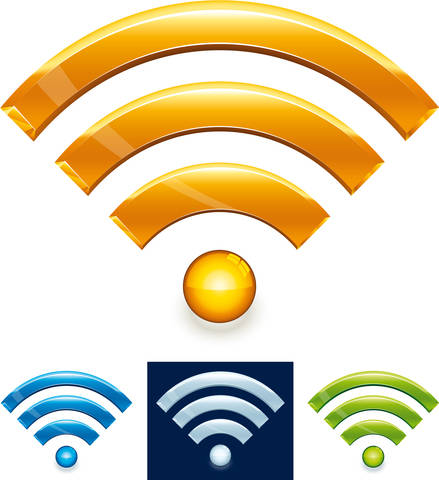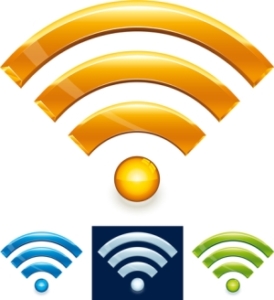We cannot overestimate the significance of a high-performance router in our increasingly digital society. Your experience with the internet is directly affected by the performance of your router, whether you're working remotely, playing intense online games, or streaming high definition stuff. Many homes & businesses still use outdated routers that can't keep up with modern expectations, which results in slow speeds, unstable connections, & bad network performance overall. It could be time to up
wifi (19)
You have likely heard of the dangers of using unsecure public Wi-Fi, so you know that hackers are out there snooping. It is pretty easy to hack into a laptop or mobile device that is on a public Wi-Fi connection with no protection. Hackers can read your emails, steal passwords, and even hijack your website log ins.

Let’s imagine that you are in a local coffee shop with your laptop. All someone has to do is download a wireless network analyzer, which usually has a free trial, and with the right ha
Have you ever wondered if it’s a good idea to surf the internet using a public WiFi network at the airport? It’s heavily trafficked, so it’s more likely that your information could get stolen, right? In some cases, it is safe to use public WiFi; your information isn’t always entirely at risk if you’re connecting to the airport network but there are definitely vulnerabilities. And, when at the airport, you may want to rethink the urge to plug in your phone using one of the USB charging stations n
If you’re going to drone on and on about how you got hacked by a cyber thief, maybe it’s because you played with your new drone—you know, those rad little flying devices that hover via remote control over your street? Yes, they are hackable.

If you don’t have a drone, don’t be surprised if you get one as a gift this season, as Americans are spending tens and tens of millions of dollars on them.
First off, if you spot a drone, before you go, “Wow, cool, there’s a drone! Kids, come look at this!” co
If someone is “borrowing” your Wi-Fi service, there’s more to this than just the nerve of someone secretly mooching off of you.

Their use of your service could interfere with bandwidth and mess up your connection. If they’re a bad guy hacker or even a skeevy child porn peddling pedophile and get caught, it can be traced to your connection—and you will have a lot of explaining to do to the authorities when they bang on your door at 4am with a battering ram.
How can you tell if someone’s riding on y
If you are like most people, there are several devices in your home that fight for WiFi connections at any given time. This slows your network, and gives you a shoddy experience. Instead, look into upgrading your system immediately and save some cash too.

The Nighthawk is a 2-in-1 cable modem-router that not only saves power, it also saves space. This modem-router features a WiFi router with a DOCSIS® 3.0 cable modem, which supports most data plans from major U.S. Internet providers.
This is a mod
If you want to be a pro at privacy, here’s a tip: When it’s time to go online, whether it’s at an airport lounge, coffee house, hotel, or any other public Wi-Fi spot, don’t log into any of your accounts unless you use a virtual private network (VPN).

A VPN is a technology that creates a secure connection over an unsecured network. It’s important to use because a hacker can potentially “see” your login information on an unsecured network. For instance, when you log in to your bank account, the hac
It is September and it’s National Preparedness Month—a great time to get involved in the safety of your community. Make plans to stay safe, and this includes maintaining ongoing communications. National Preparedness Month culminates September 30th with National PrepareAthon! Day.

I learned in high school biology class that one of the things that distinguishes life forms from inanimate objects is that living things replicate. Therefore, a computer virus is, well, alive; it replicates itself. It’s
Some of us remember college dorm days, when students were envied if they had their own typewriter. These days, college students must have a personal laptop computer, and a smartphone, and their lives revolve around these connected devices. Such dependency should be proactively protected from loss or theft. Campus security now means more than just being beware of who might be hiding in the bushes at night.

When you send your college kid off into the world, you want them to be prepared for life’s
You’re sitting on your front porch. You see a stranger walking towards your property. You have no idea whom he is. But he’s nicely dressed. He asks to come inside your house and look through your bank account records, view your checkbook routing number and account number, and jot down the 16-digit numbers of your credit cards. Hey, he also wants to write down all your passwords.

You say, “Sure! Come on in!”
Is this something you’d be crazy enough to do? Of course not!
But it’s possible that you’ve
Curl up in a chair at your favorite coffee house, the aroma of premium coffee filling the air, take a few sips of your 700 calorie latte, and then enter cyberspace. Little do you know that you could have a stalker. Or two. Or 3,000. Because public Wi-Fi is there for the picking for hackers. Online transmissions can be intercepted. The credit card number that you enter onto that retailer’s site can be “seen.”

Don’t Do These at a Public Wi-Fi Site
- Never leave your spot without your device on you—not
You worry about being hacked, but what about being tracked? Yes, there are hackers and then there are trackers.

Internet tracking namely refers to the user‘s browsing habits being followed. But there are ways to make the trackers harder to tag behind you.
- Duhh, a fake name. What an innovative idea! It‘s amazing how many people have their real name splashed all over cyberspace. Sure, you should use it for LinkedIn, and also Facebook if you want your childhood classmates to find you. But do you real
The proliferation of mobile devices means that we can work or play online from almost anywhere, so it’s no surprise that public Wi-Fi networks have become more common. From hotels and coffee shops, to universities and city centers, Wi-Fi is widely available, but is connecting to these networks safe?

If you were carrying on a highly sensitive conversation on a park bench with your closest friend, would you want everyone in the immediate area to gather around and eavesdrop?
That’s essentially what h
You will love the Tri-Band WiFi technology; it can connect all of your devices at the same time. The only router capable of this is the Netgear Nighthawk X6 AC3200 Tri-Band Wi-Fi Router (a.k.a. Netgear R8000).

This router provides three connections and has six wing-like antennas. Another feature is the ReadyShare USB. The user who’d really be interested in the Netgear R8000 is the one who has all sorts of electronics like a complete entertainment system, desktop PCs, a few laptops, game consoles,
Wired internet or wireless WiFi, the warnings are out there: Don’t visit any websites that you have important accounts with when using a public computer (hotel, airport, café, etc.).

Visiting even a more trivial account, such as an online community for cheese lovers, could sink you—in that a cyber thief might get your username and password—which are the same ones you have for your bank account, PayPal and Facebook.
Why is public Wi-Fi such a bad thing for shopping and banking and other such activi
Public Wi-Fi is the location where you can get online: airport, airplane, coffee house, hotel, motel and more. Many people don’t give this a second thought, unaware of how risky this really is.

Public Wi-Fi is very non-secure, a goldmine for hackers who want to steal your identity and commit fraud, destroy your website, you name it. They can do this many ways, including intercepting your activity with an imposter website where you input login details—that the hacker then obtains.
But public Wi-Fi
Give me a break! In the next month, students will get the week off for spring break—a much needed reward after months of hard work and, for some, gnarly winter weather. Spring break means free time, family vacations, trips with friends, and timeless memories.

But, spring break can pose some risks to your online reputation and your identity. So whether you are going to party it up in the Caribbean or you are taking the kids to Disney World, here are some tips to keep you digitally safe this spring
Ever see those public bulletin boards with all the business cards on them? Don’t be surprised if you spot one that says “Hacker•for•Hire.” These are hackers who will, for a nice juicy fee, hack into your wife’s Facebook account to see if she’s cheating on you.

However, there’s at least one hackmaking site that matches hackers to clients who want to infiltrate a network for personal gain or even revenge. The site, Hacker’s List, is a good idea, certainly not the first of its kind; the site’s found
There’s the war on drugs, the war on terrorism, the war on cancer and the war on cyber threats. In fact, more people are vulnerable to cyber attacks than they are to the first three threats combined.

So pervasive is this threat that President Obama fully recognizes that everyone is at risk. He even signed an executive order recently in the hopes of promoting the sharing of more cybersecurity related data between the government and the private sector.
Recently President Obama presented a speech at